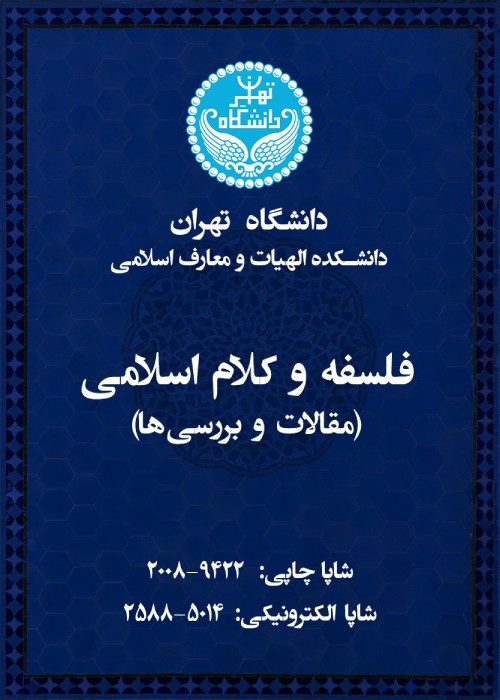Avicenna on Potential Knowledge
Author(s):
Abstract:
Distinguishing between potentiality and actuality, Aristotle solved many contradictions among past philosophies. Avicenna used this distinction to solve some epistemic problems. He introduces the term potential knowledge whose instances we can find in his philosophical works. Knowledge of the implicit conclusion in the premises, knowledge of some logical rules, knowledge of the interior parts of a quiddity, knowledge of the self-justified propositions, knowledge of reasoning, and self-awareness are instances of potential knowledge in Avicennas philosophical works. The instances of potential knowledge have two criteria in common. First, we have them in our inside existence; so we need nothing for making them actual but mental intention or mental intention accompanied with inner contemplation. Second, all these instances are implicit implications of a more general knowledge. As the knowledge of reasoning and self-awareness need only inner contemplation to become actual, they are more actual than the other instances; so the potential knowledge is gradational.
Keywords:
Language:
Persian
Published:
Philosophy & kalam, Volume:50 Issue: 1, 2017
Pages:
31 to 45
https://magiran.com/p1715159
دانلود و مطالعه متن این مقاله با یکی از روشهای زیر امکان پذیر است:
اشتراک شخصی
با عضویت و پرداخت آنلاین حق اشتراک یکساله به مبلغ 1,390,000ريال میتوانید 70 عنوان مطلب دانلود کنید!
اشتراک سازمانی
به کتابخانه دانشگاه یا محل کار خود پیشنهاد کنید تا اشتراک سازمانی این پایگاه را برای دسترسی نامحدود همه کاربران به متن مطالب تهیه نمایند!
توجه!
- حق عضویت دریافتی صرف حمایت از نشریات عضو و نگهداری، تکمیل و توسعه مگیران میشود.
- پرداخت حق اشتراک و دانلود مقالات اجازه بازنشر آن در سایر رسانههای چاپی و دیجیتال را به کاربر نمیدهد.
In order to view content subscription is required
Personal subscription
Subscribe magiran.com for 70 € euros via PayPal and download 70 articles during a year.
Organization subscription
Please contact us to subscribe your university or library for unlimited access!



